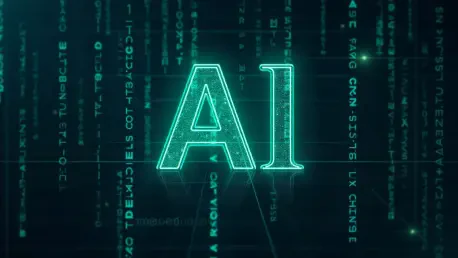Imagine a campus buzzing with innovation, where students and faculty alike are handed the keys to cutting-edge technology that could transform the way they learn, teach, and research. At Florida State University (FSU), this vision became reality with a landmark event on Landis Green, marking a historic collaboration with Google to integrate generative AI into academia. As the only Research 1 university in Florida selected for Google’s AI for Education Accelerator program, FSU hosted the Google Gemini Pop-up event, drawing attention to the immense potential of AI tools like Gemini and NotebookLM. This initiative, part of Google’s $1 billion commitment to higher education, positioned FSU as a trailblazer in leveraging technology to meet modern educational demands. The event not only showcased practical applications of AI but also sparked critical conversations about responsible usage, setting a precedent for academic institutions nationwide.
A Milestone Partnership Unveiled on Campus
The Google Gemini Pop-up event at FSU stood as a defining moment in the university’s journey toward technological advancement. Held on the iconic Landis Green, this day-long training session brought together students, faculty, staff, and Google representatives to explore how AI can revolutionize academic pursuits. The collaboration, rooted in Google’s accelerator program, aimed to equip the campus community with tools to streamline tasks like writing, coding, and research while maintaining a strong focus on data security. This partnership reflects FSU’s commitment to staying at the forefront of educational innovation, offering a glimpse into a future where technology and learning are seamlessly intertwined.
Beyond the tools themselves, the event served as a platform to foster dialogue between academia and industry leaders. Participants were introduced to a vision of education where AI acts as a supportive partner, enhancing efficiency without compromising ethical standards. The significance of FSU’s selection by Google underscored the university’s reputation for forward-thinking initiatives, drawing attendees eager to understand how such advancements could reshape their daily academic experiences. This gathering marked the beginning of a transformative chapter for the institution, promising long-term impacts on teaching and learning methodologies.
Diving into the Event’s Core Moments
The event’s structure was meticulously designed to maximize engagement, featuring a blend of expert talks, interactive workshops, and panel discussions that highlighted AI’s role in higher education. From morning to evening, Landis Green buzzed with activity as attendees participated in sessions tailored to demonstrate the practical benefits of Google’s AI platforms. These activities not only provided hands-on experience but also encouraged networking among diverse groups, fostering a collaborative spirit across disciplines. The day’s agenda was packed with opportunities to see technology in action, ensuring that every participant left with actionable insights.
A key focus was placed on inspiring attendees to rethink traditional approaches to education. Whether through live demonstrations or thought-provoking conversations, the event emphasized how AI could address pressing challenges like time management and research depth. Each segment was crafted to build on the last, creating a comprehensive learning experience that resonated with students balancing rigorous schedules and faculty seeking innovative teaching aids. This holistic approach ensured that the event’s impact extended beyond mere tool usage to a broader reimagining of academic potential.
Expert Perspectives on AI’s Transformative Power
Among the day’s highlights were the compelling presentations delivered by FSU leaders and Google experts, shedding light on the strategic importance of this collaboration. Jonathan Fozard, FSU’s Chief Information Officer, emphasized the university’s dedication to data security through a robust, cloud-based partnership with Google, ensuring that sensitive academic work remains protected. His insights reassured attendees that innovation need not come at the expense of privacy, a critical concern in today’s digital landscape.
Equally impactful were remarks from John Paul Ortiz, Go-To-Market Strategist for Google for Higher Education, who outlined a vision of AI as a catalyst for guided learning and in-depth research. He described universities as foundational spaces for professional growth, with tools like Gemini designed to support students and educators in navigating complex challenges. These talks provided a strong conceptual framework for the event, grounding the excitement around AI in tangible goals and ethical considerations that resonated deeply with the audience.
Thought-Provoking Exchanges in Panel Sessions
Panel discussions offered a dynamic forum for faculty, Google staff, and academic innovators to debate AI’s evolving role in education. These conversations tackled contemporary issues, such as how technology can bridge gaps in learning while adhering to strict ethical guidelines. Diverse viewpoints emerged, with some panelists advocating for bold experimentation and others cautioning against potential overreliance on digital tools, creating a balanced discourse.
The emphasis on responsibility struck a chord with attendees, who appreciated the nuanced exploration of innovation’s benefits and risks. These sessions encouraged critical thinking, prompting participants to consider how AI could be integrated into curricula without undermining academic integrity. The lively exchanges sparked inspiration, leaving many to ponder how such discussions could inform policies and practices at FSU in the coming years.
Practical Skills Gained Through Workshops
Interactive workshops, including sessions like “Innovation Wednesdays Coffee Chat” and “Gemini Snack & Learn,” provided hands-on opportunities to engage with AI tools directly. Students and faculty alike delved into live demonstrations, experimenting with features that simplify tasks such as drafting content and organizing research materials. These activities, held at various campus hubs, fostered a collaborative environment where participants could share tips and troubleshoot challenges together.
The high energy at the Innovation Hub was particularly notable, with packed rooms reflecting the campus community’s eagerness to adopt emerging technologies. Attendees walked away with practical skills, from creating study aids to automating repetitive academic tasks, empowering them to integrate AI into their routines effectively. This direct engagement proved invaluable, turning abstract concepts into concrete applications that could be implemented immediately.
Spotlight on Cutting-Edge AI Demonstrations
Technology unveilings took center stage as Google showcased the capabilities of its AI platforms, revealing features tailored for academic success. Demonstrations highlighted how these tools can assist with everything from coding complex programs to generating flashcards and podcasts from lecture notes. The versatility of the technology captivated the audience, illustrating its relevance across varied fields of study.
Student testimonials added a personal touch to these showcases, with many sharing how the time-saving aspects of AI could transform their academic workflows. One participant noted the ease of managing a demanding schedule with digital assistance, a sentiment echoed by peers who saw immediate value in the innovations. These moments reinforced the event’s core message: that AI has the potential to redefine learning by making it more efficient and accessible for everyone involved.
Reflecting on a Pioneering Day of Innovation
Looking back, the Google Gemini Pop-up event at FSU proved to be a resounding success, leaving an indelible mark on the university community. It brought together diverse voices to explore the intersection of technology and education, equipping participants with tools and perspectives to navigate an increasingly digital academic world. The enthusiasm and engagement displayed throughout the day underscored FSU’s leadership in embracing AI responsibly.
As a next step, FSU plans to deepen the integration of AI tools into its curriculum, ensuring sustained training and resources for students and faculty. This commitment, supported by ongoing collaboration with Google, positions the university to set a benchmark for others in higher education. Stakeholders are encouraged to stay informed about upcoming initiatives and workshops, as FSU continues to pave the way toward a future where technology enhances learning in meaningful, ethical ways.









